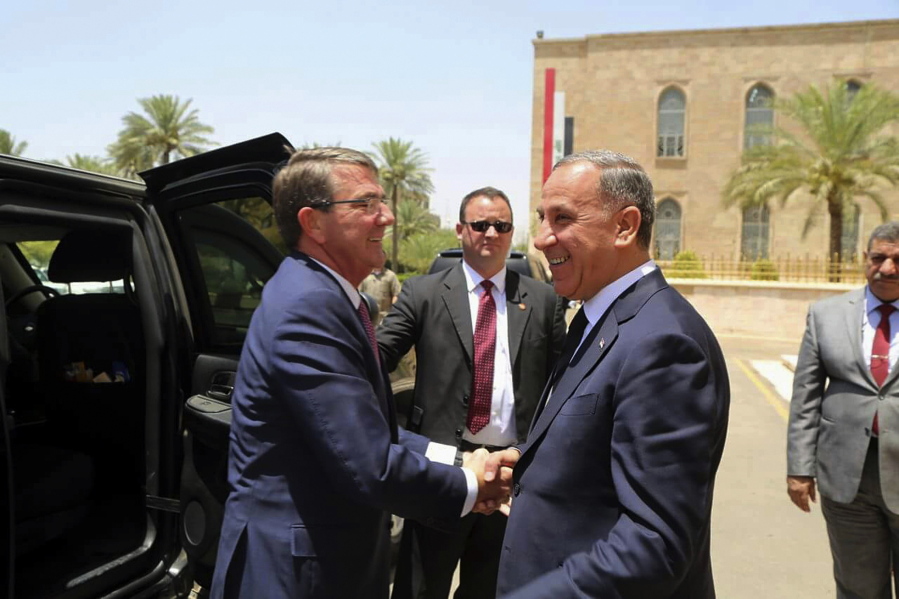BAGHDAD — The United States will send 560 more troops to Iraq to transform a freshly retaken air base into a staging hub for the long-awaited battle to recapture Mosul from Islamic State militants, Defense Secretary Ash Carter said Monday. The new American forces should arrive in the coming weeks.
Most of the engineers, logistics personnel, security and communications forces will concentrate on building up Qayara air base, about 40 kilometers south of Mosul. They will assist Iraqi forces planning to encircle and eventually retake the biggest city anywhere that has fallen under IS’ control.
The extremist group captured Mosul in the summer of 2014. It has used the city as a main headquarters since.
“These additional U.S. forces will bring unique capabilities to the campaign and provide critical enabler support to Iraqi forces at a key moment in the fight,” Carter said on an unannounced visit to the country.
Lt. Gen. Sean MacFarland, the top U.S. commander in the fight against the Islamic State group, said they have already received warning orders to deploy and will flow in “relatively soon.”
Carter announced President Barack Obama’s decision as he met about 120 troops in a building at Baghdad’s airport, shielded from scorching desert hovering near 100 degrees Fahrenheit. It is Obama’s second U.S. troop increase in Iraq in the last three months, and it brings the total U.S. force authorization there to 4,647.
If commanders need more troops, Carter said he’ll “ask the president for them.”
Carter said he has offered Iraqi leaders more help detecting and countering roadside explosives to enhance security in Baghdad, the scene of several deadly attacks in recent days.
He told reporters that U.S. advisers are prepared to accompany Iraqi battalions in operations, as those units begin the Mosul siege. It’s not clear when exactly that will happen. U.S. officials said a team of American troops went into Qayara for a quick site assessment Sunday and left.
The airfield has two runways, officials said, making it easier to move supplies and personnel. But the facilities are damaged by years of fighting, and may require repairs to be operational. Officials weren’t authorized to talk about the airfield publicly and demanded anonymity.
Iraqi forces retook the Qayara air base from the Islamic State group on Saturday. Prime Minister Haider al-Abadi hailed the success and said residents should “get ready for the liberation.”
Carter called it a strategic victory. Before arriving in Baghdad, he said the base will be a hub to help Iraqi forces “complete the southern-most envelopment of Mosul.” He likened Qayara to the eastern city of Makhmour, where U.S. troops set up a fire base for artillery to support advancing Iraqi units. Marine Staff Sgt. Louis F. Cardin was killed there in March in an IS rocket attack.
MacFarland said the new forces won’t go any closer to the fight than troops operating out of Makhmour or Taqaddum, a staging base for the battles in Ramadi and Fallujah. Iraqi forces recently retook both cities.
American advisers are working at brigade level with Iraqi special operations forces, but haven’t accompanied them on operations.
Obama in April allowed U.S. troops to assist Iraqi forces at brigade and battalion levels, where they could operate closer to the battle. They would still be behind front lines. They previously were limited to advising at headquarters and division levels, further away.
Despite recent battlefield successes, the Islamic State still controls large parts of Iraq. And it continues to launch deadly attacks, including a massive suicide bombing last week at Baghdad’s bustling commercial area of Karada. As many as 186 were killed.



